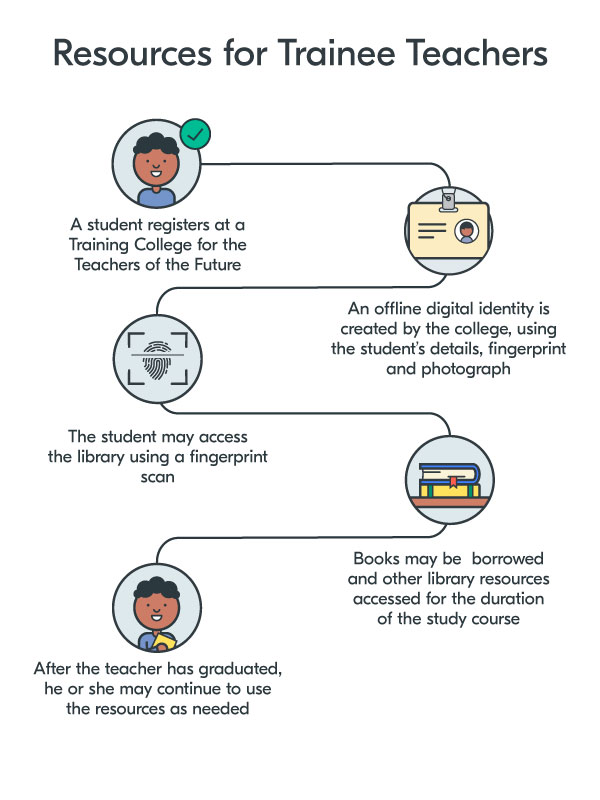
As we go about our social purpose work we regularly get to speak to local, national and international non-profit organisations. Over the years, we’ve found that many struggle to understand the many ways digital identity solutions might help them in their work.
As part of our wider efforts to help the sector make sense of the technology, today we’re publishing the fourth of six articles looking at the use of digital identities in six different humanitarian and environmental settings.
Please note that, while the technology use-case is real, the scenarios are hypothetical in nature, and the projects do not exist as stated.
Location
Angola
Scenario
Resources for trainee teachers
Background
When Angola gained independence from Portugal in 1975, the new government estimated the level of illiteracy in the country to be between 85% and 90%. There then followed 27 years of civil war, during which the country’s education system (what there was of it) was left in chaos. Not only did most of the qualified teachers leave the country, but schools were damaged by gunfire and landmines and civilians became displaced.
When the civil war ended in 2002, UN figures indicated that about 45% of Angolan children did not go to school. Those who did attend school often experienced a lack of teachers, overcrowding in unsuitable classrooms or a total absence of classrooms or classroom supplies.
However, the Angolan government quickly focused attention on improving the education system and introduced four years of free, compulsory primary education (between the ages of 7 and 11). With the help of aid agencies such as UNESCO, the government has rebuilt many schools and opened hundreds of new ones. By 2018, it employed 17,000 teachers but still estimated that a further 200,000 trained teachers would be needed in order to give all Angolan children a primary school education.
Challenge
Teachers are particularly needed in rural areas and the NGO, known as ADPP (Aid for the Development of the People by the People), which works with the Angolan Ministry of Education, has set up secondary schools in rural areas specifically to train teachers to work in local primary schools.
The three-year training promotes teaching skills through a combination of studies, courses and experiences, and students are expected to research topics for themselves, share ideas and ask questions.
The students are usually from poor backgrounds and only have a few years of primary school education themselves. They are not able to purchase textbooks or access internet resources in order to fulfil the research aspects of the training course. In addition, many of them are not in possession of the national ID card due to the problems with access to, and issuance in, rural areas.
Solution
Each of the new training schools, called Training Colleges for the Teachers of the Future (CTFs), has a library that contains relevant references and study material for the courses offered.
Students who register for a course have their personal details recorded, along with a fingerprint and face scan.
They are also issued with a student card displaying their photograph. Access to the library involves scanning a student’s fingerprint, whereafter he or she is authorised to enter and borrow resource material.

In addition, this gives access to the computer terminals available for research. Students who have already graduated as Teachers of the Future but who may still need to use the resources in the library for reference and guidance may also be given access, via fingerprint scan, for a period of time after completing their training.
Read our other scenarios on how digital identity could:

